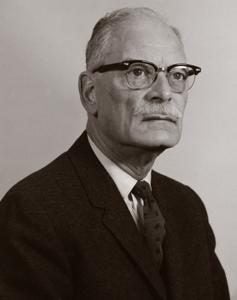 Dean Burton Thuma was appointed first RC director, but retired before the RC opened in 1967. Born in Michigan, he received his PhD (1950) from U-M. He died April 1, 1977, age 74. Memoir
Dean Burton Thuma was appointed first RC director, but retired before the RC opened in 1967. Born in Michigan, he received his PhD (1950) from U-M. He died April 1, 1977, age 74. Memoir
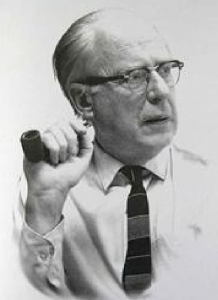 Dean James Robertson (RC director 1967-73) was on the planning committee for the RC. Born in New York, he earned a degree in accounting from New York University (1937), then a Master of Arts degree in English (1938), and after service in World War II, a PhD at U-M (1950). At U-M he served as a teaching fellow (English), Assistant Dean, and Professor of English. He retired from U-M in 1983, and died March 19, 2010, age 95. Robertson married “the only love of his life,” Jean Belknap in 1941. They had three children. Robertson loved teaching, reading, writing, travel, the University of Michigan, and his family. He wrote and published numerous articles about undergraduate education, two volumes of personal memoirs, and dozens of travelogues entitled “Travels with Jean.” Obit
Dean James Robertson (RC director 1967-73) was on the planning committee for the RC. Born in New York, he earned a degree in accounting from New York University (1937), then a Master of Arts degree in English (1938), and after service in World War II, a PhD at U-M (1950). At U-M he served as a teaching fellow (English), Assistant Dean, and Professor of English. He retired from U-M in 1983, and died March 19, 2010, age 95. Robertson married “the only love of his life,” Jean Belknap in 1941. They had three children. Robertson loved teaching, reading, writing, travel, the University of Michigan, and his family. He wrote and published numerous articles about undergraduate education, two volumes of personal memoirs, and dozens of travelogues entitled “Travels with Jean.” Obit
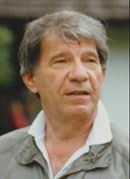 Louis Orlin (RC director 1973-74) was born in Bayonne, New Jersey and earned his BA (1949), MA, in Renaissance Literature (1951), and PhD, in Near Eastern Studies, Ancient Near Eastern History and Literature (1960) from U-M. He retired in 1989 and died September 17, 2016, age 91. Obit, Prabook
Louis Orlin (RC director 1973-74) was born in Bayonne, New Jersey and earned his BA (1949), MA, in Renaissance Literature (1951), and PhD, in Near Eastern Studies, Ancient Near Eastern History and Literature (1960) from U-M. He retired in 1989 and died September 17, 2016, age 91. Obit, Prabook
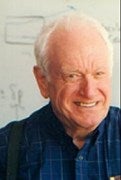 Marc Ross (RC director 1974-77) was born in Baltimore, and earned a BS from Queens College (1948) and a PhD in Physics (1952) from University of Wisconsin. He was Professor of Physics at Indiana University until 1963, then Professor of Physics at U-M until 2001. Ross married Joan Drakert in 1949. Ross was an adamant anti-Vietnam war activist. He loved hiking in the wilderness, good food and song, especially Mozart. He died on November 26, 2017. Obit
Marc Ross (RC director 1974-77) was born in Baltimore, and earned a BS from Queens College (1948) and a PhD in Physics (1952) from University of Wisconsin. He was Professor of Physics at Indiana University until 1963, then Professor of Physics at U-M until 2001. Ross married Joan Drakert in 1949. Ross was an adamant anti-Vietnam war activist. He loved hiking in the wilderness, good food and song, especially Mozart. He died on November 26, 2017. Obit
 John Mersereau, Jr. was director of the RC from 1977-85, after heading a committee to review the college. Mersereau began at U-M as an instructor in the Slavic Department (1956), and was promoted to assistant professor (1959), associate professor (1961), and professor (1963). He was director of the Slavic Language and Area Center (1961-67), chair of the Department of Slavic Languages and Literatures (1961-71, 1986-89), and acting director of the Center for Russian and Slavic Languages (1975-76). He retired in 1989. He said he had the best job in the world. Born 1925 in San Jose, California, he graduated from Los Gatos High School (1942) and earned a BA (1946) MA, Russian (1950), and PhD, Russian (1956) from the University of California at Berkeley. A Navy ROTC cadet during college, he served aboard the cruiser U.S.S. Phoenix during World War II. He met and married Nanine ‘Bimi’ Landell in 1953; they had two children. Considered the foremost authority on the great Russian poet Lermontov, Mersereau wrote five books, four monographs and twenty five articles primarily about Russian Romantic authors. Several of his translations were with David Lapeza (RC 1972). He also penned the hilarious “How to Grill a Gourmet,” based on the true story of how he and several close friends started Ann Arbor’s first authentic French Restaurant, La Seine, in 1965. Mersereau was an animal lover, loved to travel and had a wide variety of interests including reading, haute cuisine, haymaking, cooking, back packing, skiing, and flying, and was a member of the Commanderie De Bordeaux (an organization of lovers of Bordeaux wines) and Who’s Who. He died in January 2009. Memoir, obit
John Mersereau, Jr. was director of the RC from 1977-85, after heading a committee to review the college. Mersereau began at U-M as an instructor in the Slavic Department (1956), and was promoted to assistant professor (1959), associate professor (1961), and professor (1963). He was director of the Slavic Language and Area Center (1961-67), chair of the Department of Slavic Languages and Literatures (1961-71, 1986-89), and acting director of the Center for Russian and Slavic Languages (1975-76). He retired in 1989. He said he had the best job in the world. Born 1925 in San Jose, California, he graduated from Los Gatos High School (1942) and earned a BA (1946) MA, Russian (1950), and PhD, Russian (1956) from the University of California at Berkeley. A Navy ROTC cadet during college, he served aboard the cruiser U.S.S. Phoenix during World War II. He met and married Nanine ‘Bimi’ Landell in 1953; they had two children. Considered the foremost authority on the great Russian poet Lermontov, Mersereau wrote five books, four monographs and twenty five articles primarily about Russian Romantic authors. Several of his translations were with David Lapeza (RC 1972). He also penned the hilarious “How to Grill a Gourmet,” based on the true story of how he and several close friends started Ann Arbor’s first authentic French Restaurant, La Seine, in 1965. Mersereau was an animal lover, loved to travel and had a wide variety of interests including reading, haute cuisine, haymaking, cooking, back packing, skiing, and flying, and was a member of the Commanderie De Bordeaux (an organization of lovers of Bordeaux wines) and Who’s Who. He died in January 2009. Memoir, obit
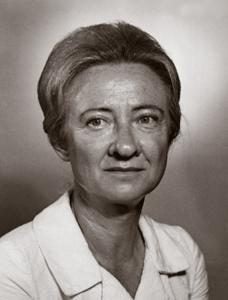 Elizabeth Douvan (RC director 1985-88) was born in South Bend and earned an AB (1946) from Vassar and PhD in social psychology (1951) from U-M. She was a study director at the Survey Research Center, and joined the psychology faculty in 1951 (associate professor, 1965; professor, 1968). She helped found the Program in Women’s Studies in 1972. Douvan authored many works in the field of social psychology, spanning such diverse topics as adolescence, feminine psychology, mental health, marriage, and family life. The Adolescent Experience (1966) established her as a leading social scientist. Her 1981 books on mental health continue to be widely cited. She was named in Who’s Who in America, Who’s Who of American Women, and American Women of Science. She was married for 55 years and had two children. She died June 15, 2002, age 76. Memoir, profile
Elizabeth Douvan (RC director 1985-88) was born in South Bend and earned an AB (1946) from Vassar and PhD in social psychology (1951) from U-M. She was a study director at the Survey Research Center, and joined the psychology faculty in 1951 (associate professor, 1965; professor, 1968). She helped found the Program in Women’s Studies in 1972. Douvan authored many works in the field of social psychology, spanning such diverse topics as adolescence, feminine psychology, mental health, marriage, and family life. The Adolescent Experience (1966) established her as a leading social scientist. Her 1981 books on mental health continue to be widely cited. She was named in Who’s Who in America, Who’s Who of American Women, and American Women of Science. She was married for 55 years and had two children. She died June 15, 2002, age 76. Memoir, profile
 Herbert Eagle (RC director 1988-96) earned a PhD (1973) from U-M. Eagle is Chair of Slavic Language and Literature at U-M. He has focused his research on Russian and East European cinema, film theory, poetry, and controversial prose written under communism. He has published articles on Sergei Eisenstein, semiotics of cinema, and the work of East European filmmakers such as Menzel, Chytilova, Wajda, Polanski, Kieslowski, Pichul, Lungin, Gabor, Gothar, and Makavejev. His books include Russian Formalist Film Theory (1981) and the volume co-edited with Anna Lawton, Words in Revolution: Russian Futurist Manifestoes, 1912-1918 (republished 2006).
Herbert Eagle (RC director 1988-96) earned a PhD (1973) from U-M. Eagle is Chair of Slavic Language and Literature at U-M. He has focused his research on Russian and East European cinema, film theory, poetry, and controversial prose written under communism. He has published articles on Sergei Eisenstein, semiotics of cinema, and the work of East European filmmakers such as Menzel, Chytilova, Wajda, Polanski, Kieslowski, Pichul, Lungin, Gabor, Gothar, and Makavejev. His books include Russian Formalist Film Theory (1981) and the volume co-edited with Anna Lawton, Words in Revolution: Russian Futurist Manifestoes, 1912-1918 (republished 2006).
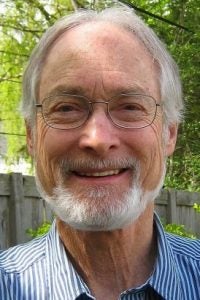 Thomas Weisskopf (RC director 1996-05) was born in Rochester, New York and grew up in the Boston area. He earned a BA (1961) in Economics from Harvard University and a and PhD (1966) in Economics from MIT. He served as assistant professor of economics at Harvard (1968-72), and joined U-M as associate professor of economics in 1972. He directed the Academic Program in Aix-en-Provence, France in the 2006-7 academic year. He retired from U-M in June 2010. He is married and has three children. Autobiography
Thomas Weisskopf (RC director 1996-05) was born in Rochester, New York and grew up in the Boston area. He earned a BA (1961) in Economics from Harvard University and a and PhD (1966) in Economics from MIT. He served as assistant professor of economics at Harvard (1968-72), and joined U-M as associate professor of economics in 1972. He directed the Academic Program in Aix-en-Provence, France in the 2006-7 academic year. He retired from U-M in June 2010. He is married and has three children. Autobiography
 Charlie Bright (RC director 2005-11) is a historian, trained in European military and geopolitical history, who has moved far afield in his teaching and research. His two books, on statemaking and social movements and on prison history grew out of courses he taught and research projects he led in the RC. Bright has also long been interested in theater and has taught several courses over the years in collaboration with faculty in the Drama Program — including one on theater and politics in interwar Germany that underwrote a series of productions of plays by Bertolt Brecht in the RC, and more recently in collaborations with Detroit area theater companies, doing oral histories of the city that are then transformed into plays or musicals. His new collaboration, with the Mosaic Youth Theater of Detroit, will begin in the coming academic year.
Charlie Bright (RC director 2005-11) is a historian, trained in European military and geopolitical history, who has moved far afield in his teaching and research. His two books, on statemaking and social movements and on prison history grew out of courses he taught and research projects he led in the RC. Bright has also long been interested in theater and has taught several courses over the years in collaboration with faculty in the Drama Program — including one on theater and politics in interwar Germany that underwrote a series of productions of plays by Bertolt Brecht in the RC, and more recently in collaborations with Detroit area theater companies, doing oral histories of the city that are then transformed into plays or musicals. His new collaboration, with the Mosaic Youth Theater of Detroit, will begin in the coming academic year.
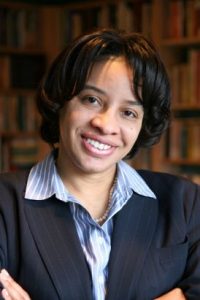 Angela Dillard (RC director 2011-2014) is the Richard A. Meisler Collegiate Professor of Afroamerican & African Studies, and part of the Social Theory & Practice program in the RC. She was born in Detroit and earned a BA (1988) in Justice, Morality and Constitutional Democracy from James Madison College, MSU, an MA (1991) in Political Theory from New School for Social Research, and an MA (1992) and PhD (1995) in American Culture from U-M. She joined the U-M faculty in 2006, served as Director of the Department of Afroamerican and African Studies (2011-11), and was LSA Associate Dean for Undergraduate Education (2015-19). She is the author of Faith in the City: Preaching Radical Social Change in Detroit and Guess Who’s Coming to Dinner Now?: Multicultural Conservatism in America. She is a faculty advisor of the Detroit School of Urban Studies and Co-PI on the Egalitarian Metropolis project, jointly sponsored by LSA and the Taubman College of Architecture and Urban Planning and funded by the Andrew Mellon Foundation.
Angela Dillard (RC director 2011-2014) is the Richard A. Meisler Collegiate Professor of Afroamerican & African Studies, and part of the Social Theory & Practice program in the RC. She was born in Detroit and earned a BA (1988) in Justice, Morality and Constitutional Democracy from James Madison College, MSU, an MA (1991) in Political Theory from New School for Social Research, and an MA (1992) and PhD (1995) in American Culture from U-M. She joined the U-M faculty in 2006, served as Director of the Department of Afroamerican and African Studies (2011-11), and was LSA Associate Dean for Undergraduate Education (2015-19). She is the author of Faith in the City: Preaching Radical Social Change in Detroit and Guess Who’s Coming to Dinner Now?: Multicultural Conservatism in America. She is a faculty advisor of the Detroit School of Urban Studies and Co-PI on the Egalitarian Metropolis project, jointly sponsored by LSA and the Taubman College of Architecture and Urban Planning and funded by the Andrew Mellon Foundation.
 Jonathan Wells (RC director 2014- 19) received an MA in American History (1993) from University of Florida, and an MA (1993) and PhD (1998) in American History from U-M. He is the author of Women Writers and Journalists in the Nineteenth-Century South and A House Divided: The Civil War and Nineteenth-Century America. He is Professor in the RC Arts and Ideas in the Humanities Program, in Afroamerican and African Studies, and History.
Jonathan Wells (RC director 2014- 19) received an MA in American History (1993) from University of Florida, and an MA (1993) and PhD (1998) in American History from U-M. He is the author of Women Writers and Journalists in the Nineteenth-Century South and A House Divided: The Civil War and Nineteenth-Century America. He is Professor in the RC Arts and Ideas in the Humanities Program, in Afroamerican and African Studies, and History.
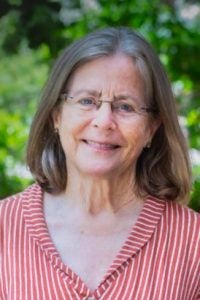 Catherine Badgley (RC director 2019- ) is Professor in the Department of Ecology and Evolutionary Biology and the Residential College. She is the 11th Director of the Residential College beginning in July 2019. Her research focuses on the ecology and evolution of mammals, based on the fossil record and modern mammalian faunas. In addition, she studies sustainable food systems. She has published more than 50 scientific papers, one book for children, and several articles for the general public. She has participated in paleontological research expeditions in Pakistan, China, Kenya, and the western United States. She currently leads field research in the Mojave Desert focusing on the ecological and evolutionary responses of mammals to a period of global warming that occurred in the geological past. In the Residential College, Catherine is head of the Science Program and for many years has been faculty advisor to the academic minor in Science, Technology, and Society.
Catherine Badgley (RC director 2019- ) is Professor in the Department of Ecology and Evolutionary Biology and the Residential College. She is the 11th Director of the Residential College beginning in July 2019. Her research focuses on the ecology and evolution of mammals, based on the fossil record and modern mammalian faunas. In addition, she studies sustainable food systems. She has published more than 50 scientific papers, one book for children, and several articles for the general public. She has participated in paleontological research expeditions in Pakistan, China, Kenya, and the western United States. She currently leads field research in the Mojave Desert focusing on the ecological and evolutionary responses of mammals to a period of global warming that occurred in the geological past. In the Residential College, Catherine is head of the Science Program and for many years has been faculty advisor to the academic minor in Science, Technology, and Society.
Ellis Wunsch was acting director of the RC during Fall 1971
Compiled by Dan Madaj
Abstract:
Inaugurated in 1967 as a living-learning community within the larger university, planning for the Residential College began in the early 1960s.
History:
The Residential College (RC) at the University of Michigan was inaugurated in 1967 as a living-learning community of teachers and students, to give participants an alternative to a large university experience. Early in the 1960s, the increasing enrollment in the university’s College of Literature, Science and the Arts (LS&A) caused some members of the faculty to envision a school which combined the advantages of a small liberal arts college with a large research university. Dean (and later Vice President) Roger Heyns, Professor Theodore Newcomb, Professor Wilbert J. McKeachie, and LS&A Dean Burton Thuma were among the planners who worked to create the new college. The Residential College was officially established as a unit by the Regents in March 1964, and the Residential College Faculty Planning Committee was formed within LS&A in September 1964.
Dean Burton Thuma chaired the Planning Committee and was also named Director of the Residential College, although he retired before the first class of freshmen arrived in the fall of 1967. The Planning Committee prepared extensive reports to the faculty in 1965 and 1966, and, in April 1966, earned Regental approval of the Residential College concept and curriculum. The program was scheduled to begin in the East Quadrangle in the fall of 1967, with planners looking toward occupancy of a North Campus site in the fall of 1969. This latter part of the plan, which envisioned the college on a forty-acre site between Fuller Road and the Huron River, was eventually abandoned.
James Robertson became the director of the RC on July 1, 1967, and the first class of 217 freshmen matriculated in the fall. Key elements of the RC curriculum have endured from its beginnings: the freshman seminar, strong language proficiency and pass/fail grading, supplemented with textual evaluations. Early topics of concern within the community involved governance and the core curriculum. The inability of the RC to confer tenure was another difficult problem. Its powerlessness to reward instructors, coupled with financial instability, led to staffing problems. The result was such that the majority of classes were taught by teaching fellows or lecturers.
In the fall of 1971, LS&A Dean Frank Rhodes appointed a special committee to review the RC. Professor Rhoads Murphey chaired the committee, which produced its report in the spring of 1972. Although the report was often critical, it ended by affirming the goals and future of the RC. The LS&A faculty debated the Murphey report in October 1972. The outcomes were that a joint RC/LS&A Board should be established, and that the RC should be reviewed every four years. Crucial issues of financing and staffing were left unresolved.
Louis Orlin took over as acting director of the RC on July 1, 1973, and served for one year, though poor health greatly inhibited his work. He was succeeded by physics professor Marc Ross, who served for three years beginning July 1, 1974, and John Mersereau, Jr., who served for eight years beginning July 1, 1977. Under Mersereau, the RC underwent its second review in 1976. The committee concluded that the RC was financially, academically, and philosophically viable. Mersereau was appointed as full-time director and was able to direct substantially more time to administration than any of the earlier directors. During Mersereau’s tenure, the RC/LS&A Joint Board instituted triennial curriculum reviews of each of the RC’s programs, reviewed and recommended appointments and promotions, and served as a lobbying force within the LS&A Executive Committee.

